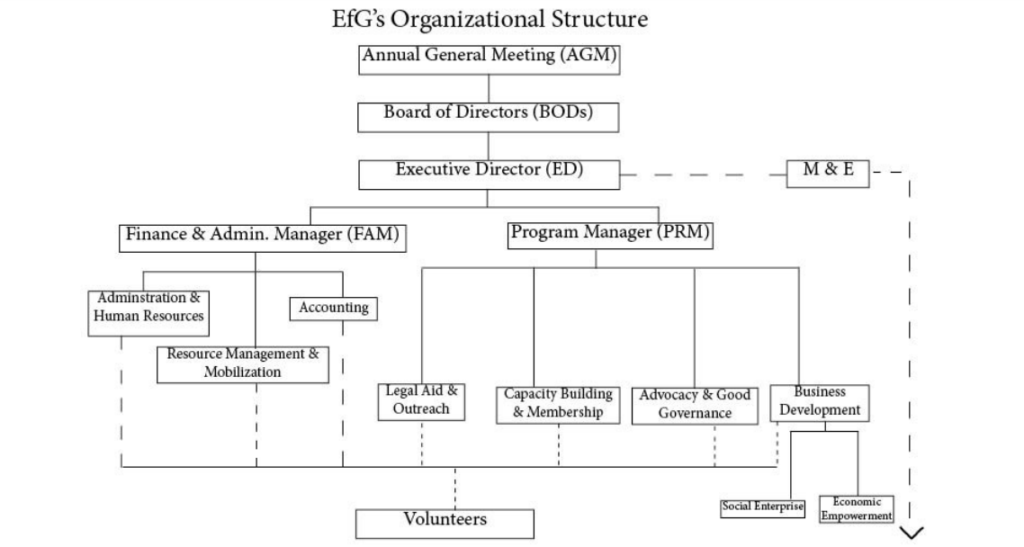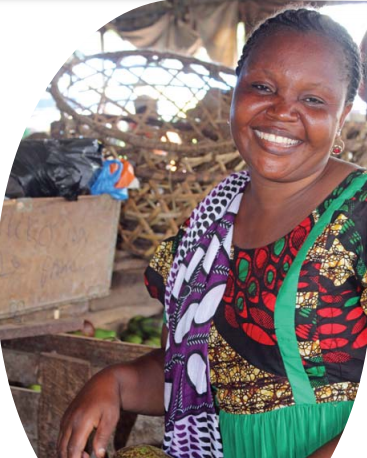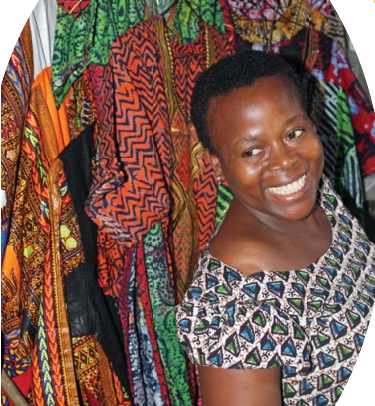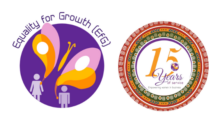History & Situation
Equality for Growth (EfG) is a rights-based NGO seeking to empower Tanzania’s informal sector women. EfG began in 2008, since then it has sought for voice, visibility and rights of women who operate in Tanzania’s informal economy. EfG was established and registered in Tanzania as of 6th August 2008 with registration No. 66935 and later in 2011, the organization acquired a certificate of NGO Compliance No. 00001544. The targeted beneficiaries of EfG’s work are self-employed women workers, in both the formal and informal sectors.
In the interest of transparency to beneficiaries and donors, EfG is making its audited financial statements available for download. Download our 2020 Financial Report here.
Objectives
EfG has been set up with the following objectives:
- To facilitate processes that ensure women and men have equal access to ownership, management and utilization of land and other productive resources for enhanced livelihood.
- To influence and facilitate socio-economic policies and practices that promotes equal gender relations for inclusive and sustainable development.
- To enable informal sector women to access justice through the provision of legal aid services.
- To raise awareness to the public on the rights of informal sector actors.
- To encourage and support vulnerable and marginalized women in establishing groups/ networks and empower them with entrepreneurship skills.
- To conduct research that will inform our policy engagements, advocacy and organizational development.
Vision
We envision a future where women entrepreneurs in markets are organised, connected, and empowered to claim their rights and solve their problems at the market level and beyond.
Mission
We are mobilising a movement of women entrepreneurs in markets to promote the voice, agency, and leadership of women in the informal sector at the community, local, and national levels through conscientisation, organising, access to justice, research, and economic empowerment.
Values
Justice: We put fairness and equal rights for all first, especially the most marginalised and excluded in our societies.
Dignity: We strive to ensure all people are treated with basic decency and respect; we exemplify this principle in all our interactions.
Innovation: We are tireless in our quest to improve; whether we tinker or disrupt, we start each day with a thirst for it to be better than the last.
Solidarity: We stand together; our power is built on our numbers and our connection. We are a sisterhood seeking change.
Courage: We are resilient in the face of adversity and fearless in our pursuit of justice.
Transparency: We seek and model openness to better serve our clients and the government.
Accountability: We demonstrate and demand the highest standards for the people we serve and for redress when we or others tasked with public responsibility fail to deliver.
Organizational Structure

The organizational structure of EFG is divided into three levels. The Annual General Meeting, Board of Directors functions as a governance organ at the apex. The Board of Directors is composed of five highly respected and committed individuals who serve in their individual capacities and provide the policy directives and guide the implementation strategies of the programs. Being a new organization EfG has visionary leadership and committed volunteers. EfG has seven active Boards of Directors including Executive Director who is an ex officio, a Secretary to the Board.
Some of our success stories
Mariam

Mariam is a single mother of four. Three years ago, her husband left her for another woman. Since being separated, he had refused to pay child support, leaving Mariam to care for her children on her own. After learning about EfG’s legal services, Mariam reached out for guidance regarding her situation. She was provided with knowledge on matrimonial laws and her rights, support and access to a pro-bono lawyer. Her case went to court; ruling in her favour her ex-husband is now obligated to provide financial support. The family property and farmland was also successfully allocated to her children. Following this success, Mariam gained confidence and her burden of care was lifted allowing her the opportunity to join a VICOBA group where she served as a leader and works to spread the knowledge she gained from EfG to fellow market traders. Mariam also contested for a market leadership position and played a prominent role in drafting a new gender-inclusive market constitution.
Asha

Asha is a widowed mother of four. During her marriage, she managed to obtain a number of properties in Dar es salaam, including a land plot. After her husband’s death, his relatives denied her the right to inherit the property, arguing she had no claim. Asha received human rights education from EfG and learned that traditional marriages such as hers are legally recognized and that her children had the right to inherit their late father’s property. Because of this knowledge, she started to claim her rights and those of her children to inherit the property.
“The education on marriage and inheritance that I obtained from EfG has helped me to get back my land that was lost for seven (7) years.”
Asha stated in an interview
